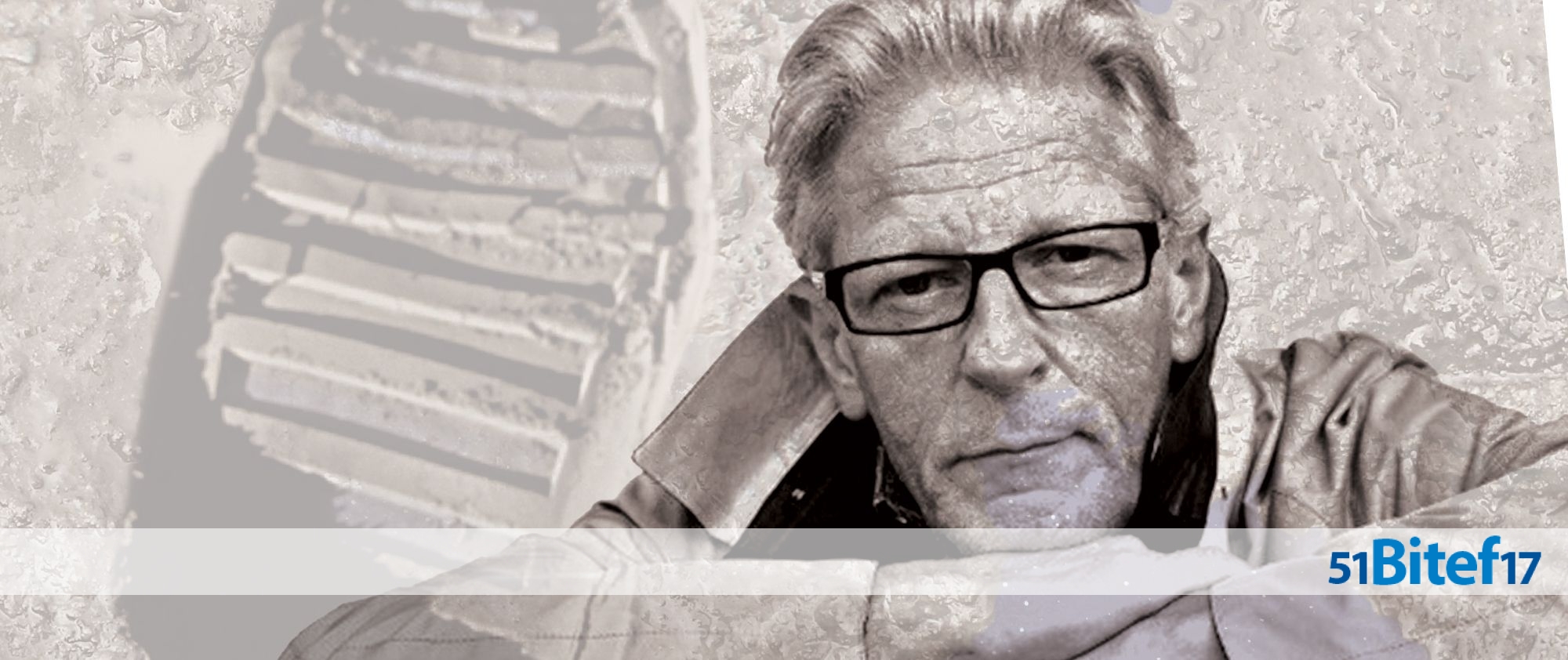Jan Fabre, one of the most significant contemporary directors, presents this year his work to Bitef audience for the third time. After the performances “The Power of the Theatrical Madness”, awarded at 18th Bitef, and “Prometheus Landscape II” which opened 45th Bitef , this year we are watching “Mount Olympus -to Glorify the Cult of Tragedy”, a 24h performance.
Known as one of the most versatile artists of our times, Fabre has been, in the past three decades, active as a performing artists, theatre director, choreographer, opera author, playwright and visual artists. International critics are unanimous that “Mount Olympus” merges all his skills and talents, and Belgrade audience is expecting it not only as masterpiece in art but as “a theatre rave-party”.
We talked to Jan Fabre as soon as he arrived to Belgrade.
- Why twenty-four hours?
Because three days and three nights were too long for me. In ancient Greece, rituals dedicated to Dionysus lasted for three days. After twelve months’ work with my company, I realized that twenty-four hours are strenuous both physically and mentally and that it is enough.
- How does this duration affect the actors?
Some of them stay awake for fifteen, sixteen hours, so it’s a fantastic experience. The way bodies get contaminated with time and exhaustion, what kind of physical and mental response is created and how the text is uttered - those are all parts of the research.
- What is the biggest difference between your previous performances and this one?
This one is a bit more successful (laugh). I’m an artist who is constantly on a quest, constantly searching. I apply the same approach in my visual art. As soon as I see that something is becoming successful, I stop. My artistic career is forty years long and I am always systematic in my experimental research.
- Where does the idea for this performance come from?
The motifs of Prometheus and Sisyphus have been constantly present in my writing and visual art since the seventies. I have always been inspired by ancient Greece. Six or seven years ago, I got a bit older, a bit wiser and more prepared to understand all the Greek tragedies and translate them into my own language. It happens often that young directors try staging Shakespeare or Chekhov without being ready yet. That is the beauty of life: the more you take of it, the more you can give to it. It takes all life to become a young artist, so you have a lot of time ahead of you.
- How does the audience react?
We have just returned from Paris where one thousand six hundred people stayed for the whole twenty four hours, and the applause lasted for entire thirty eight minutes! I never expect anything from the audience; I just want to offer something nice to people. The audience is free to do whatever they want.
- What is your underlying idea in this performance?
While I was making this performance, I wasn’t thinking of how successful it would be. I thought that some fifty people would stay by the end and I was ok with that. We have been to thirteen cities so far and yet, the performance is still an on-going process. With me, the process and creation are over after the last performance. I keep working with my actors and dancers while we are on tours; I am trying to offer various approaches to them so they don’t turn into auto-pilots. It teaches them living art and I think that it is very important that I, as the director, motivate them to work, to change. This performance is already thirty to fifty per cent different than how it used to look like two years ago.
- Do you watch every performance?
I’m always there, behind the buttons… Between lighting and sound, making rain and fog. I’m always behind the scene ready to help, to offer advice, to negotiate and talk. It’s a process which lasts for 24h too.
